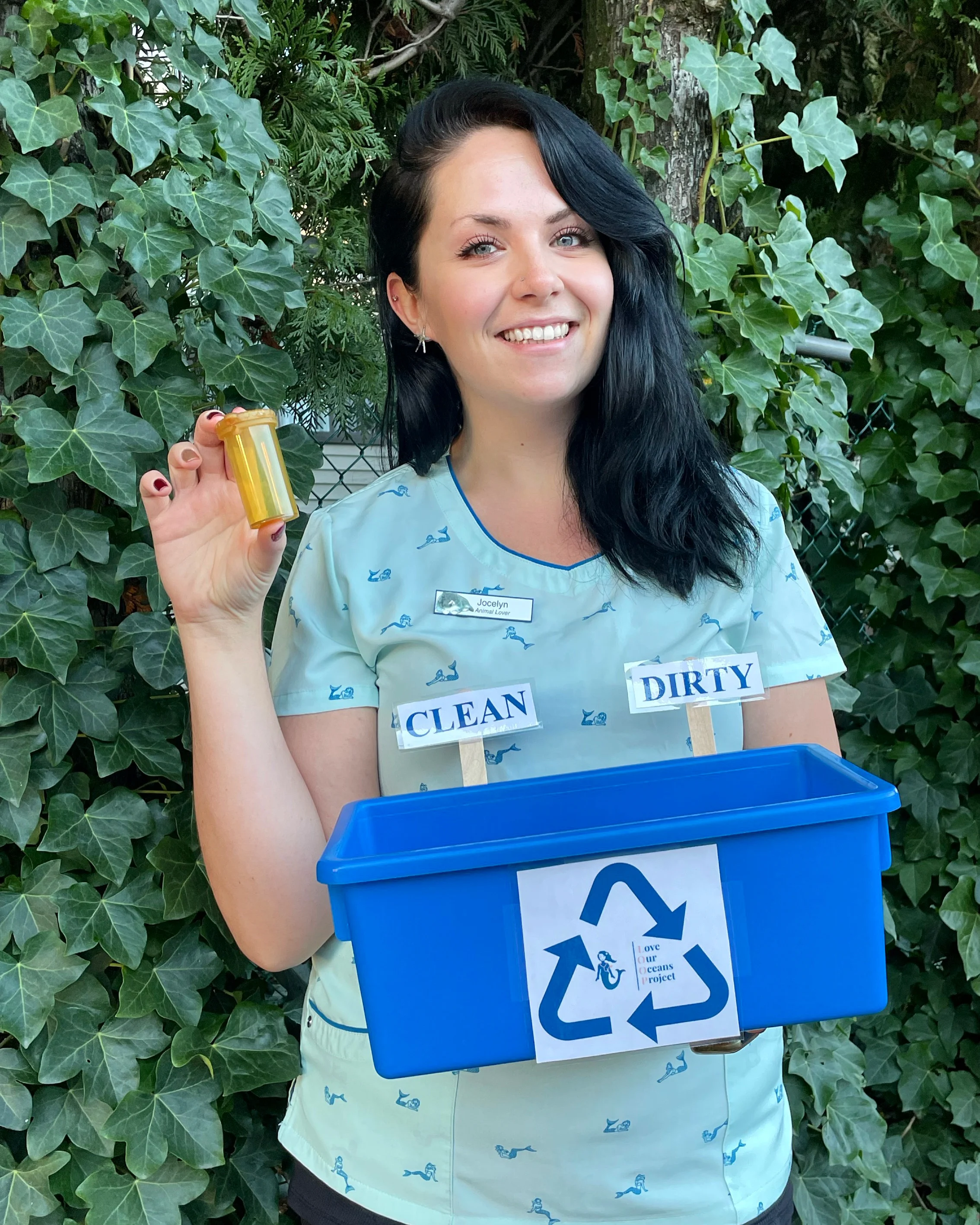
Jocelyn Marsh hopes to one day bring her program to human pharmacies across Canada.
When veterinary technician Jocelyn Marsh was accepted to Ocean Wise’s Ocean Bridge program in 2021, she seized her opportunity to make a difference in both the veterinary profession and the global environment.
Inspired by a Simple Observation
Ocean Wise, a Vancouver-based nonprofit, promotes ocean conservation; their Ocean Bridge program, created for participants aged 18-30, empowers young Canadians to develop their own conservation projects.
Marsh, 28, quickly found her project. “I spent 5 minutes just observing the clinic and I realized the amount of plastic pill vials we were dispensing,” Marsh explains. “Plus IV bags, syringes, and packaging.”
With Ocean Bridge resources and mentorship, Marsh began a pill bottle recycling and refill program, as well as a weight-based system for auditing controlled substances, at South Burnaby Veterinary Hospital in Vancouver, where she has worked since 2017.
A Sea Change
Originally from Alberta, Marsh has long been interested in marine science. When a diagnosis of cold urticaria ruled out her planned oceanography career, she turned to veterinary medicine.
“I had never heard of veterinary technicians before,” Marsh says. “I was researching marine rehabilitation center jobs, which included veterinarians and veterinary technicians. So I decided to become an RVT!”
From 2023: What Technicians Want You to Know
NEW: Work-Related Fatigue in Veterinary Technicians
Implementing Waste Reduction as a Team
Marsh’s veterinary “work family” at South Burnaby encouraged her ambassadorship with Ocean Bridge, and enthusiastically supported her plastic reduction program at the clinic. In the program, implemented October 2021, participating clients drop off their pets’ empty medication containers at the clinic to be disinfected and reused. In some cases, a veterinary technician can simply refill the bottle with the same medication. In other cases, pill bottles are disinfected with a chlorhexidine bath and then stored for reuse.
Marsh has also implemented a system for tracking controlled substances by weight, rather than measuring substances with syringes. In Canada, veterinary practices are expected to complete weekly drug audits to mitigate diversion of controlled substances. At South Burnaby, the weekly audit of liquid substances was conducted by pulling up each medication into a sterile syringe to measure the volume of medication.
“We were using 800 plastic needles and syringes per year just for auditing purposes,” she says. Under Marsh’s proposal, vials of medication are now measured on an accurate gram scale, reducing plastic waste and saving time. “What used to take 2 technicians at least 2 hours to complete now takes just half that time.”
Making a Difference
“In medicine, the reality is we have to use these plastic products,” Marsh notes. “But it’s exciting to see how small steps towards reducing plastic waste can snowball.”
For veterinarians looking to reduce their clinic’s plastic waste, Marsh has made it easy to adapt and implement these measures. Standard operating procedures for both pill bottle recycling and weight-based auditing are available on her website, loveouroceansproject.com.